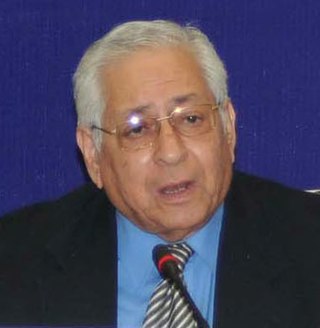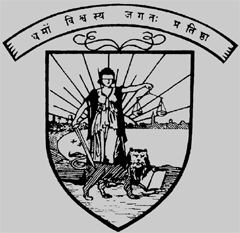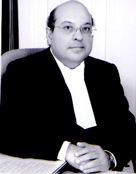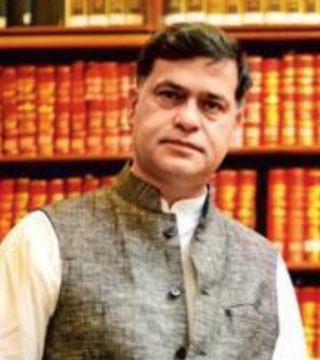Related Research Articles

A barrister is a type of lawyer in common law jurisdictions. Barristers mostly specialise in courtroom advocacy and litigation. Their tasks include arguing cases in courts and tribunals,drafting legal pleadings,researching the law and giving legal opinions.
In most common law jurisdictions,the attorney general or attorney-general is the main legal advisor to the government. In some jurisdictions,attorneys general also have executive responsibility for law enforcement,prosecutions or even responsibility for legal affairs generally. In practice,the extent to which the attorney general personally provides legal advice to the government varies between jurisdictions,and even between individual office-holders within the same jurisdiction,often depending on the level and nature of the office-holder's prior legal experience.

A King's Counsel is a senior lawyer appointed by the monarch of some Commonwealth realms as a "Counsel learned in the law". When the reigning monarch is a woman,the title is Queen's Counsel (QC).

The title of Senior Counsel or State Counsel is given to a senior lawyer in some countries that were formerly part of the British Empire. "Senior Counsel" is used in current or former Commonwealth countries or jurisdictions that have chosen to change the title "King's Counsel" to a name without monarchical connotations,usually related to the British monarch that is no longer head of state,such that reference to the King is no longer appropriate. Examples of jurisdictions that have made the change because of the latter reason include Mauritius,Zambia,India,Hong Kong,Ireland,South Africa,Kenya,Malawi,Singapore,Guyana and Trinidad and Tobago. Jurisdictions that have retained the monarch as head of state,but have nonetheless opted for the new title include some states and territories of Australia,as well as Belize.

The Attorney General for India is the chief legal advisor of the Government of India. The Attorney General is appointed by the President of India at the instance of the Union Cabinet under Article 76(1) of the Constitution and hold office during the pleasure of the President. The Attorney General must meet the qualifications necessary for an appointment as a Judge of the Supreme Court. Therefore,the Attorney General should have served as a judge in a high court for a minimum of five years,or as an advocate in a high court for at least ten years. Alternatively,the President may consider an individual as eligible for the role if they are deemed an eminent jurist.

Soli Jehangir Sorabjee,AM was an Indian jurist who served as Attorney-General for India from 1989 to 1990,and again from 1998 to 2004. In 2002,he received the Padma Vibhushan for his defence of the freedom of expression and the protection of human rights.

The Government Law College,Mumbai,,India,founded in 1855,is the oldest law school in Asia. The college,affiliated to the University of Mumbai,is run by the Government of Maharashtra.
Harish Salve KC is an Indian senior advocate who practices at the Supreme Court of India. He served as the Solicitor General of India from 1 November 1999 to 3 November 2002. He also fought the case of Kulbhushan Jadhav at the International Court of Justice (ICJ). On 16 January 2020 he was appointed as a King's Counsel for the courts of England and Wales.

Kottayan Katankot Venugopal is an Indian constitutional lawyer and a senior advocate in the Supreme Court of India. He was enrolled as an advocate on 27 January 1954. On 1 July 2017,he was appointed as the Attorney General of India and retired on 30 September 2022. He is Patron of SAARCLAW and earlier has been its President. He is founder of M K Nambyar SAARCLAW Centre For Advanced Legal Studies at the NALSAR University of Law.
Goolamhussein Essaji Vahanvati was an Indian senior counsel who served as the 11th Attorney General for India. His first term in office began in June 2009 and was for three years.

Gopal Subramanium is an Indian lawyer,international arbitrator,academic and Senior Advocate who practices primarily in the Supreme Court of India and the Delhi High Court. He served as the Solicitor General of India 2009–2011 and Additional Solicitor General of India 2005–2009. He served as Chairman of the Bar Council of India 2010–2011.

Rohinton Fali Nariman is a former judge of the Supreme Court of India. Before being elevated as a judge,he practised as a senior counsel at the Supreme Court. He was appointed the Solicitor General of India on 23 July 2011. He also served as a member of the Bar Council of India. He was designated as a Senior Counsel by Chief Justice Manepalli Narayana Rao Venkatachaliah in 1993 at the early age of 37.
Gourab Banerji is a Senior Advocate appearing in varied cases before the Indian courts and in many domestic and international arbitrations in India and overseas. He is an alumnus of Cambridge University (1986-1989),from where he graduated with First Class Honours,and has been practicing in India since 1990. As an Additional Solicitor General of India in the Supreme Court (2009-2014),he represented the Union of India in many sensitive and landmark cases. Banerji has also been appointed amicus curiae by the Courts in several matters relating to land laws,international commercial arbitration,Supreme Court practice and procedure,as well as indirect tax. He is also an Overseas Associate at the Essex Court Chambers,London.
Raju Ramachandran is a senior advocate at the Supreme Court of India and a former Additional Solicitor General. He served as an amicus curiae for the Supreme Court of India in the 2002 Gujarat riots case and in the appeal of Ajmal Kasab in the 2008 Mumbai attacks case.

Sidharth Luthra is a senior advocate at the Supreme Court of India. In July 2012,Sidharth Luthra was appointed as the Additional Solicitor General of India at the Supreme Court and represented the union and various state governments in matters relating to fundamental rights,electoral reforms,criminal law and policy issues. He resigned from this position in May 2014. He is the son of K.K. Luthra who was also a senior advocate and brother of senior advocate Geeta Luthra.
Ranjit Kumar is a senior advocate practising in Supreme Court of India and the former Solicitor General of India. He was appointed in 2014 by the incumbent government of Narendra Modi,succeeding Mohan Parasaran. The notification for his appointment as Solicitor General of India was issued by the Law Ministry on 7 June 2014. Ranjit Kumar resigned from his post on 20 October 2017 citing a personal family-related reason.

The National Judicial Appointments Commission (NJAC) was a proposed body which would have been responsible for the recruitment,appointment and transfer of judicial officers,legal officers and legal employees under the government of India and in all state governments of India. The commission was established by amending the Constitution of India through the 99th constitution amendment with the Constitution (Ninety-Ninth Amendment) Act,2014 or 99th Constitutional Amendment Act-2014 passed by the Lok Sabha on 13 August 2014 and by the Rajya Sabha on 14 August 2014. The NJAC would have replaced the collegium system for the appointment of judges as invoked by the Supreme Court via judicial fiat by a new system. Along with the Constitution Amendment Act,the National Judicial Appointments Commission Act,2014,was also passed by the Parliament of India to regulate the functions of the National Judicial Appointments Commission. The NJAC Bill and the Constitutional Amendment Bill,was ratified by 16 of the state legislatures in India,and subsequently assented by the President of India Pranab Mukherjee on 31 December 2014. The NJAC Act and the Constitutional Amendment Act came into force from 13 April 2015.

Lavu Nageswara Rao is a former judge of the Supreme Court of India. He is the seventh person elevated directly from the bar to the Supreme Court and was sworn in on 13 May 2016. He was a senior advocate and a former Additional Solicitor General of India.
Saurabh Kirpal is an Indian lawyer,author and a senior advocate at the Delhi High Court. He is also an LGBTQ rights activist.
Gopal Sankaranarayanan is an Indian lawyer practicing at the Supreme Court of India. He was designated as a senior advocate by the Supreme Court of India in March 2019. He is known for his specialization in Constitutional law. He served as the secretary of the Lodha Committee,appointed by the Supreme Court of India in 2015 to bring about reforms in cricket administration in India. He has provided assistance to the Supreme Court as an Amicus curiae in numerous cases. In April 2022,the Supreme Court appointed him as Amicus curiae to assist in the finalization of the Constitution of the All India Football Federation (AIFF).
References
- ↑ "K K Venugopal assumes charge as Attorney General". The Economic Times. 3 July 2017. Retrieved 27 August 2017.
- ↑ "LIST OF LAW OFFICERS". Ministry of Law and Justice. Archived from the original on 27 December 2016. Retrieved 2 January 2017.
- ↑ "List of Law Officers of Government of India". Archived from the original on 27 December 2016. Retrieved 12 June 2014.
- ↑ "Senior advocate Mukul Rohatgi is new Attorney General". Zee News. Retrieved 12 June 2014.
- ↑ Singh, Gyanant. "Meet India's supermen in black: When people like Robert Vadra get into trouble, only a handful of lawyers are called to bail them out". India Today. Retrieved 25 May 2014.
- ↑ "On His Majesty's Legal Service? | Outlook India Magazine".
- ↑ "List of designated Senior Advocates, Delhi High Court" (PDF). Delhi High Court. Retrieved 1 February 2015.
- ↑ Mahapatra, Dhananjay (9 January 2010). "India's top 10 lawyers". Times of India . Retrieved 1 February 2015.